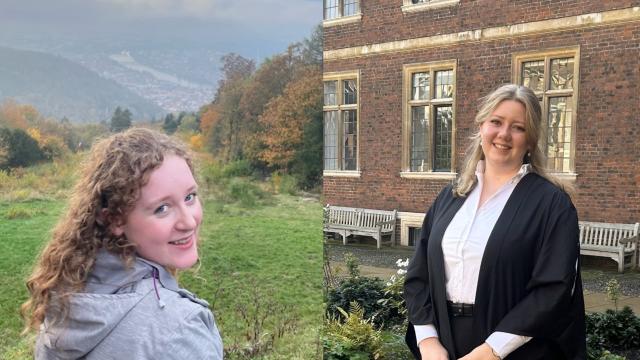
Johan Bolhuis is Professor of Cognitive Neurobiology at Utrecht University, The Netherlands. He received his MSc in Biology (cum laude) at the University of Groningen, The Netherlands (1984). His association with Cambridge started when, as an undergraduate, he spent 14 months as a guest student at the Department of Zoology. He obtained his PhD in Zoology (cum laude) at Groningen (1989), and was a Postdoctoral Research Fellow at the Universities of Edinburgh and Cambridge. During the 1990s, he was a Member of High Table at King’s College and Sidney Sussex College. He was an Associate Professor at the Institute of Biology, Leiden University, The Netherlands, before being appointed to his current role by Utrecht University in 2001. He was a Visiting Scholar at Sidney Sussex College (2014–15) and at St Catharine’s College (2016–21). Since 2019 he has been an Affiliated Lecturer in the Department of Psychology at the University of Cambridge.
Professor Bolhuis has served as President of the Royal Dutch Zoological Society (2001–07). He is Editor-in-Chief of the journal Behavioural Processes, and editor of seven books, including Brain, Perception, Memory (OUP, 2000), and, together with linguist Martin Everaert, Birdsong, Speech, and Language (MIT Press, 2013). He is co-editor of the academic textbook The Behavior of Animals (2nd Edition, Wiley-Blackwell, 2022).
Bolhuis, J.J., Beckers, G.J.L., Huybregts, M.A.C., Berwick, R.C. & Everaert, M.B.H (2018) Meaningful syntactic structure in songbird vocalizations? PloS Biology, 16(6), e2005157.
Friederici, A.D., Chomsky, N., Berwick, R.C., Moro, A. & Bolhuis, J.J. (2017) Language, mind and brain. Nature Human Behaviour, 1, 713-722.
Everaert, M.B.H, Huybregts, M.A.C., Chomsky, N., Berwick, R.C & Bolhuis, J.J. (2015) Structures, not strings: Linguistics as part of the cognitive sciences. Trends in Cognitive Sciences, 19, 729-743.
Bolhuis, J.J., Tattersall, I., Chomsky, N. & Berwick, R.C. (2014) How could language have evolved? PLoS Biology, 12(8), e1001934.
Berwick, R.C., Friederici, A.D., Chomsky, N. & Bolhuis, J.J. (2013) Evolution, brain and the nature of language. Trends in Cognitive Sciences, 17, 89-98.
Bolhuis, J.J., Okanoya, K. & Scharff, C. (2010) Twitter evolution: Converging mechanisms in birdsong and human speech. Nature Reviews Neuroscience, 11, 747-759.
Bolhuis, J.J. & Wynne, C.D.L. (2009) Can evolution explain how minds work? Nature, 458, 832-833.
Bolhuis, J.J. & Gahr, M. (2006) Neural mechanisms of birdsong memory. Nature Reviews Neuroscience, 7, 347-357.



